15 SNES Games That Were Better On Sega Genesis
The unique war between the SNES and Genesis featured quite a few shared games that were actually much better on one console or the other. Today, we look at the games that Genesis owners got the better version of.
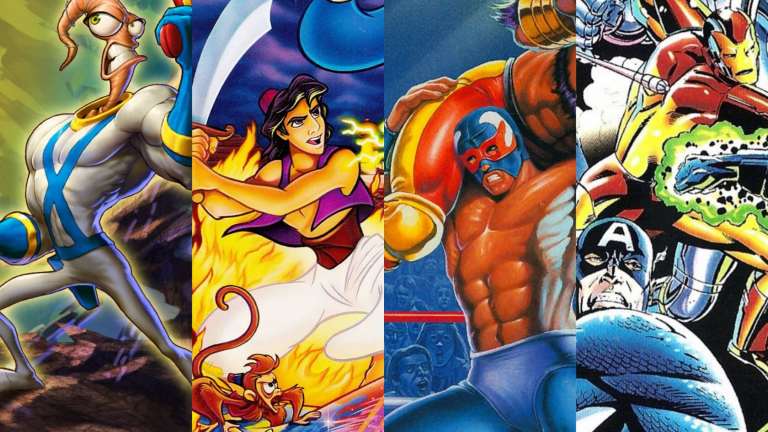
Competition breeds innovation, and few industries demonstrate that better than video games. Throughout history, console manufacturers have always tried to convince gamers to use their platforms if they want a truly superior experience. While many more modern consoles have actually delivered roughly the same technical capabilities as their competitors, the Super Nintendo vs. Sega Genesis era happens to be filled with examples of games that were clearly better on one console rather than the other.
One of the biggest console wars ever was the beef between Nintendo’s Super Nintendo Entertainment System (SNES) and the Sega Genesis. The rivalry was epitomized by marketing campaigns that dunked on the competition, claiming that one console was the end all, be all of gaming. This is how we ended up with famous terms such as “blast processing,” as well as timeless slogans like “Sega does what Nintendon’t.” More importantly, we ended up with a library of titles that influenced the gaming industry for years to game. While many of those games were exclusives like Super Metroid or Phantasy Star II, even the third-party titles that the SNES and Genesis “shared” weren’t always created equally.
Not only were many there many third-party games that were basically entirely different experiences on either the SNES or Genesis, but there were some games that were simply better on one console or the other. While the SNES actually won quite a few victories on neutral ground, we’ll save the discussion about those games for another day. Today, let’s talk about a truly eclectic lineup of games that were simply better on Sega Genesis.
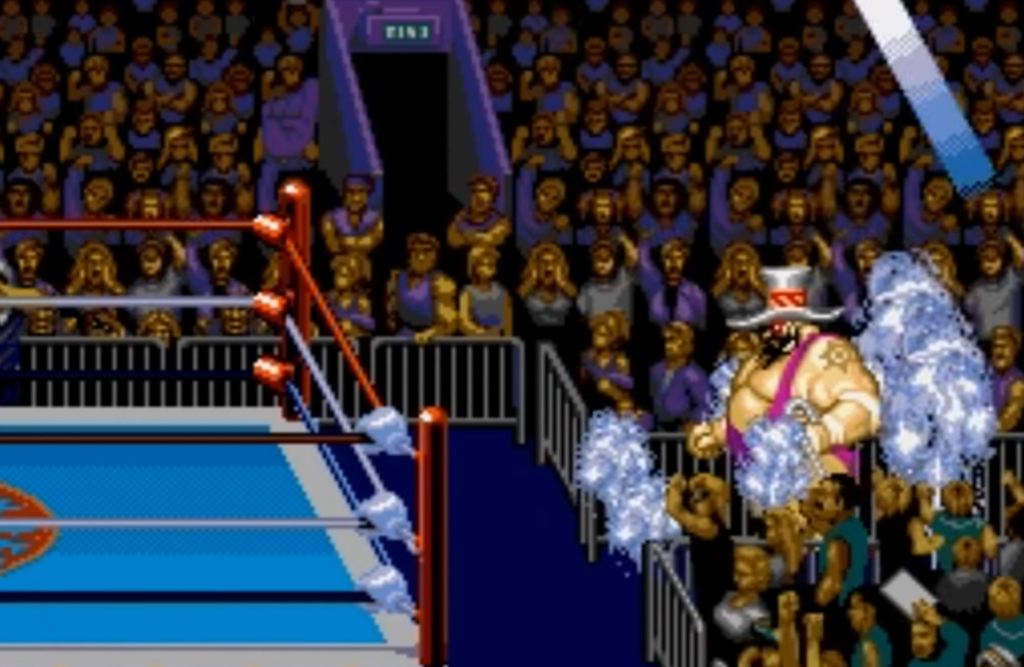
15. Saturday Night Slam Masters
While the SNES version of Saturday Night Slam Masters tends to get all of the love (whenever the game is mentioned at all), the Genesis version of that wrestling-themed fighting title is actually slightly better.
Like some of the other games on this list, you could argue that the SNES version of this game features slightly better presentation values. Crucially, though, the Genesis version of the game not only features two extra playable characters but a hilarious “Deathmatch” mode complete with barbed wire ropes and exploding ringside charges. It’s certainly the version of the game that gets the Terry Funk seal of approval.
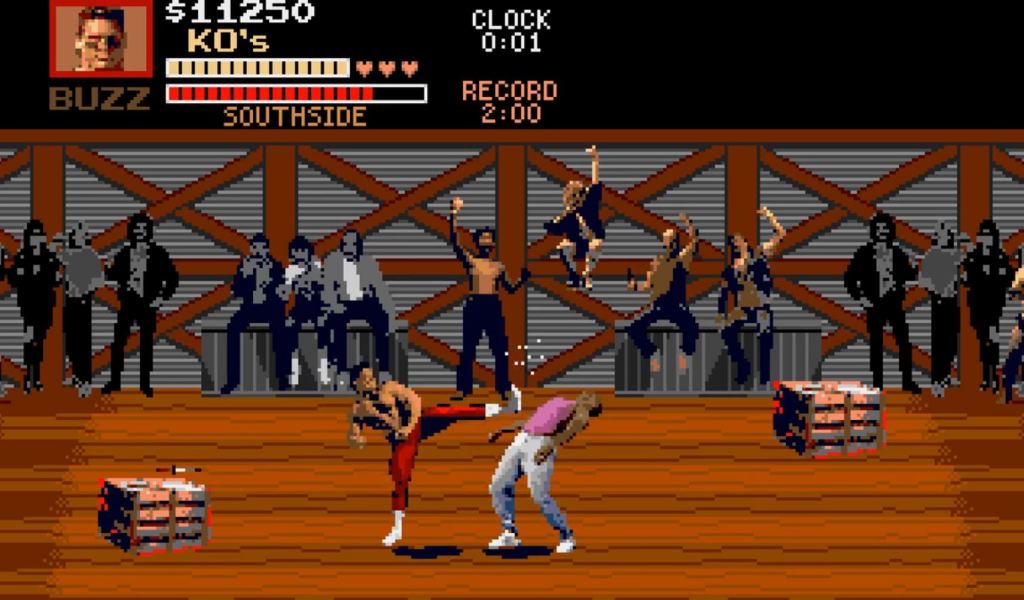
14. Pit Fighter
To be fair, there’s really no great way to play Pit Fighter on a console. Pit Fighter was, at best, a mediocre arcade game with “advanced” graphics that were never going to work on the Genesis or SNES.
Still, it must be said that the Genesis version of Pit Fighter is far, far superior to the SNES version of the game. Whereas the SNES version of Pit Fighter is one of that console’s absolute worst major releases, the Genesis version of Pit Fighter does a fairly respectable job of retaining a few of the key things that made the arcade game somewhat interesting. This is really one of the few examples of a Genesis game being objectively better than its SNES counterpart.

13. Aladdin
The Aladdin games for SNES and Sega Genesis are classic sidescrollers that many gamers fondly remember. Exactly how you remember the games, though, kind of depends on which version you played. That’s because the Genesis and SNES versions of this classic are almost entirely different games. You really can’t go wrong with either option in the instance, but the Genesis version is just slightly better.
While both versions of Aladdin seem to play similarly at first, the devil is in the details. In the SNES version, players can attack either by jumping on enemies or throwing apples, while the Genesis version gives players a sword in addition to deadly apples. While there’s nothing wrong with jumping on heads to defeat villains (just ask Mario), the sword-based combat is more fluid and generally a bit more entertaining.

12. Taz Mania
Like Aladdin, Taz Mania is a “game” available on both the SNES and Sega Genesis. Unlike Aladdin, the differences between Taz Mania on the SNES and Taz Mania on the Sega Genesis are so pronounced that the Genesis version proves to be pretty much objectively better.
The SNES version of Taz Mania is an over-the-shoulder racing game that asks players to run down long stretches of road while eating birds. Its graphics are sharp and clean, and its sound effects sound like they were ripped straight out of the show. However, those levels play the same no matter what you do. All you do is just race to eat as many birds as you can. Also, Taz’s iconic spin move drains his health, which really seems counterintuitive.
Meanwhile, the Genesis version of Taz Mania is a much more traditional sidescroller. Players still need to reach the finish line, but they get to enjoy a wider variety of locales, and even a few boss fights, along the way. Granted, the Genesis version’s graphics and sounds are a touch worse, but they are still good nonetheless. Besides, a fun, if typical, platformer is always superior to a boring racer.
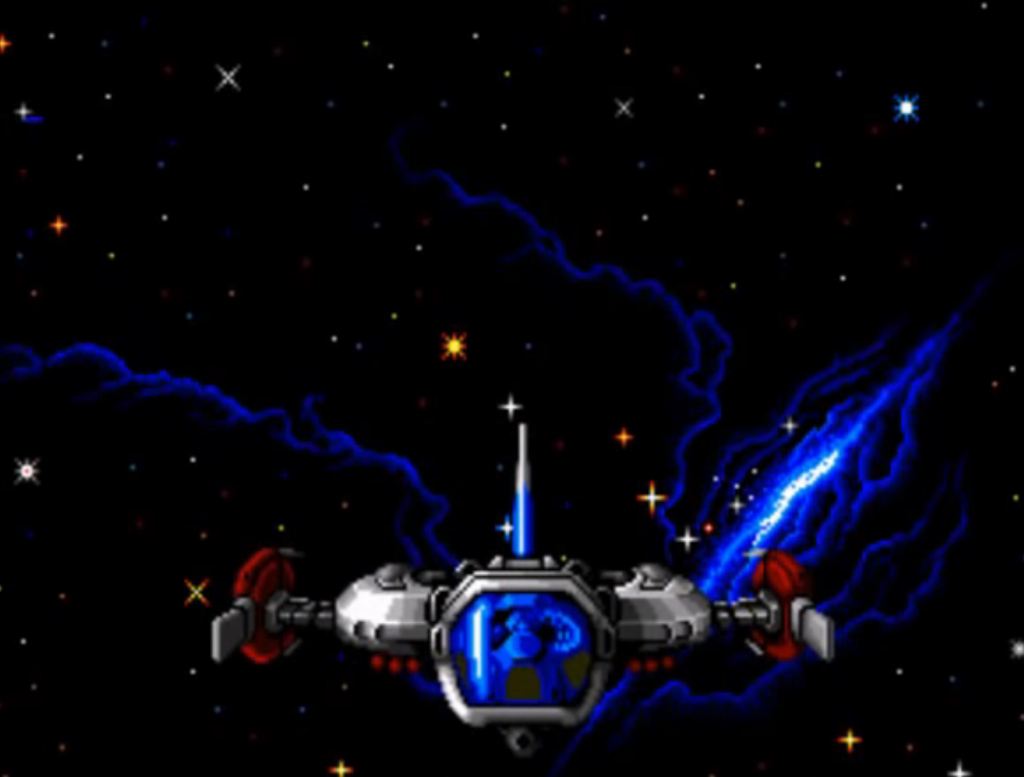
11. Thunder Force 3 (And Most Other Shmup Games)
Shoot ‘em ups (or Shmups for short) used to be everywhere. They made for great arcade fodder since they were difficult (and addictive) as hell. Porting that genre to consoles was a no-brainer, but gamers soon learned that many consoles just weren’t able to recreate the best Shmup experiences. However, the Genesis almost always offered the superior versions of some of the best console shoot ‘em ups of that era.
Visually, many shared Shmup titles on both platforms were usually identical, but the Genesis’ processor was better designed to handle those kinds of games. Titles such as Gradius 3 and Super R-Type were hamstrung on the SNES by horrendous lag and slowdown that could strike without warning. The SNES versions of games like Thunder Spirits got off a bit easier since they suffered less from slowdown, yet a side-by-side comparison with that title’s Genesis counterpart (Thunder Force 3) reveals faster (and generally more enjoyable) gameplay.
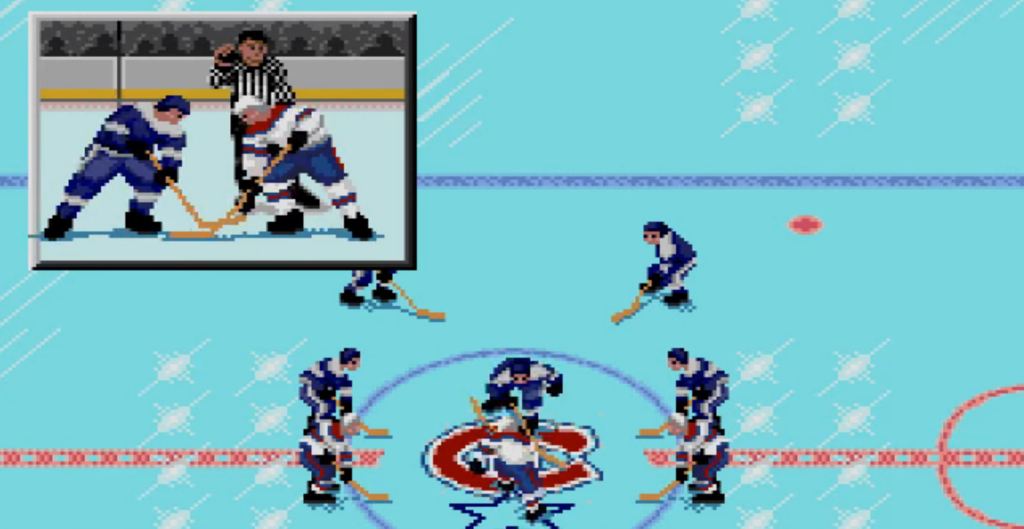
10. NHL ’94 (And Pretty Much Every Other EA Sports Game)
Electronic Arts doesn’t have the best of relationships with Nintendo. Most of EA’s library isn’t available on Nintendo’s consoles, and EA’s complicated relationship with the Switch (and refusal to dedicate many games to it) is well documented. This is nothing new, as EA favored Nintendo’s competitors as early as the SNES era.
Generally speaking, sports games on the Genesis looked and performed better. That console’s processor was more suited to rendering larger numbers of sprites at once, which obviously proved to be a tremendous advantage when it comes to digitally recreating most major sports. While the argument between art style and graphical fidelity currently favors art style (at least in many circles), the Genesis and its EA sports titles demonstrated that graphical fidelity has its place.
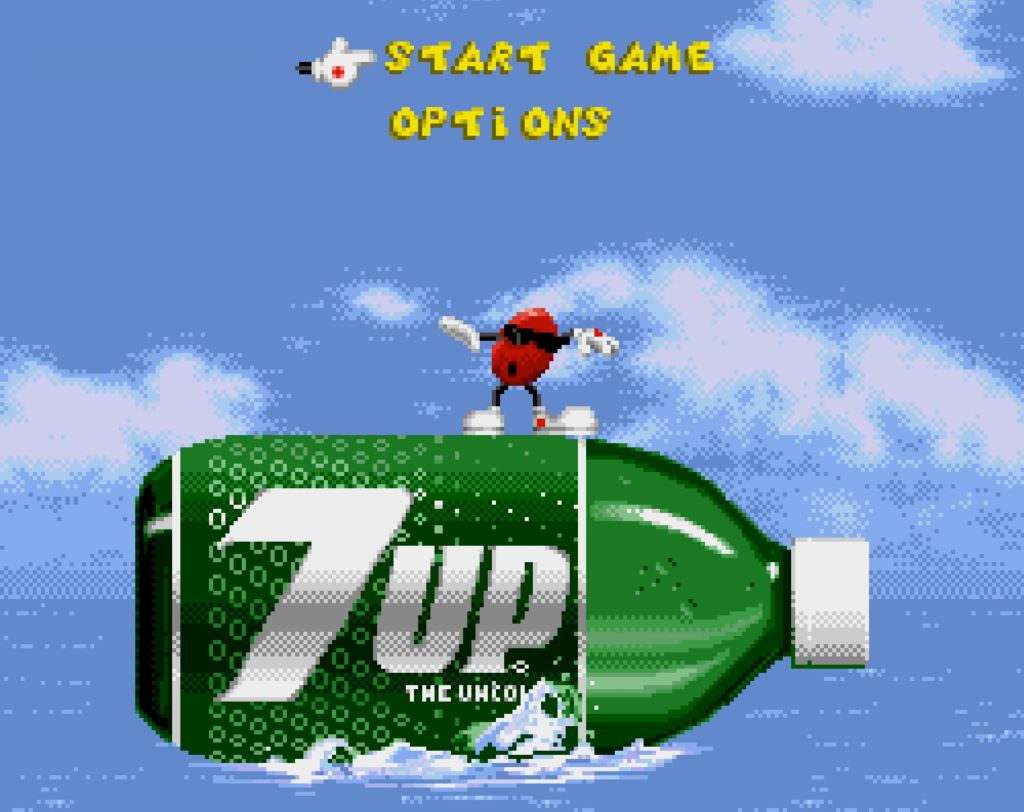
9. Cool Spot
Remember when seemingly every company tried to push a mascot they thought would appeal to children? Quite a few of those mascots, such as 7 Up’s Cool Spot, received their own video games. While the SNES and Genesis versions of this game are both surprisingly playable, the Genesis version is clearly superior.
While the SNES version of Cool Spot is a bit more colorful and detailed at a glance, screenshot-worthy looks only matter so much. Crucially, Cool Spot’s Genesis port features superior resolution that lets players see more of the game. Since each level is a maze of platforms and collectibles, that performance enhancement proves to be more than a nicety. Add in enhanced sound design that better encapsulates the mascot’s jammin’ attitude, and the Genesis version proves to deliver a superior overall package.
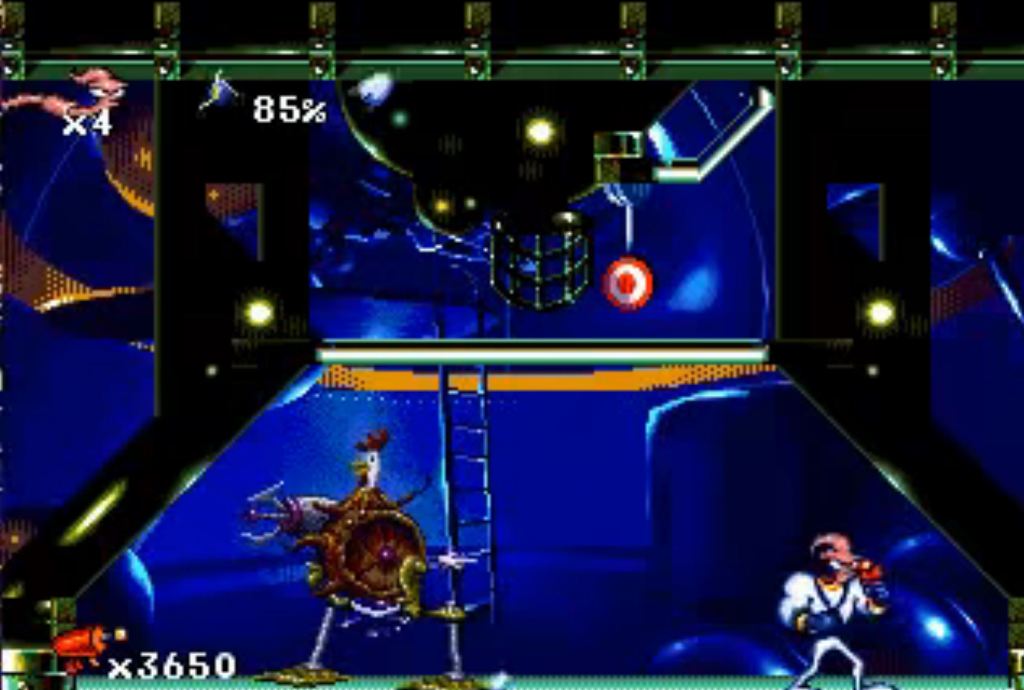
8. Earthworm Jim
The ’90s were all about mascot platformers. If a studio didn’t have a mascot they already owned or could license, they created one. Earthworm Jim is arguably the culmination of that trend, as well as the unlikely face of how different consoles were better geared to different experiences.
While the SNES version of Earthworm Jim is no slouch graphics-wise, the Genesis edition features slightly better colors, backgrounds, and level effects. As for audio, the SNES opts for clearer sounds, but the Genesis ultimately comes out on top in the audio department simply because it features more sound effects.
What truly solidifies the Genesis port’s place above the SNES version is the game’s “Intentional Distress” level. Why is that level the deciding factor? Well, it’s because it isn’t in the SNES version at all. In order to get the complete Earthworm Jim experience back in the day, gamers needed to play the title on the Sega Genesis.
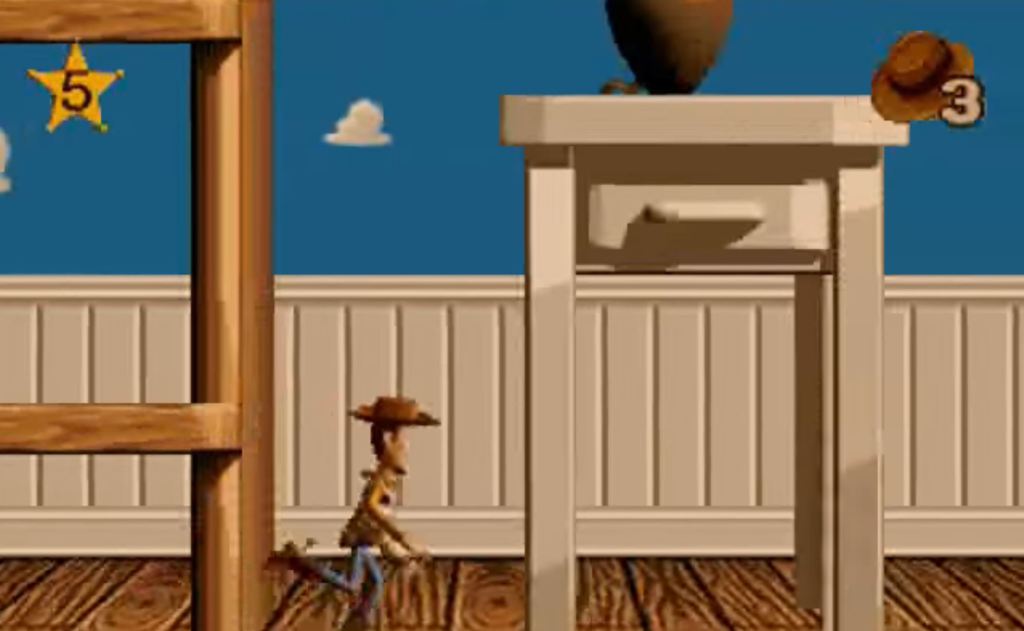
7. Toy Story
While older movie tie-in games typically languished in clearance bins, the Toy Story games set themselves apart as fun experiences in their own right. As you already guessed based on the premise of this article, though, the Genesis version of Toy Story was just a little more magical.
While the SNES’ superior colors more faithfully capture the movie’s palette, the Genesis version of Toy Story is better from a gameplay standpoint. The Genesis version’s improved hit detection makes it easier to use Woody’s string, and that port also tones down the difficulty of the game’s semi-3D DOOM-like segment. Also, as with Earthworm Jim, Toy Story on the Genesis packs in an extra level that SNES players miss out on.
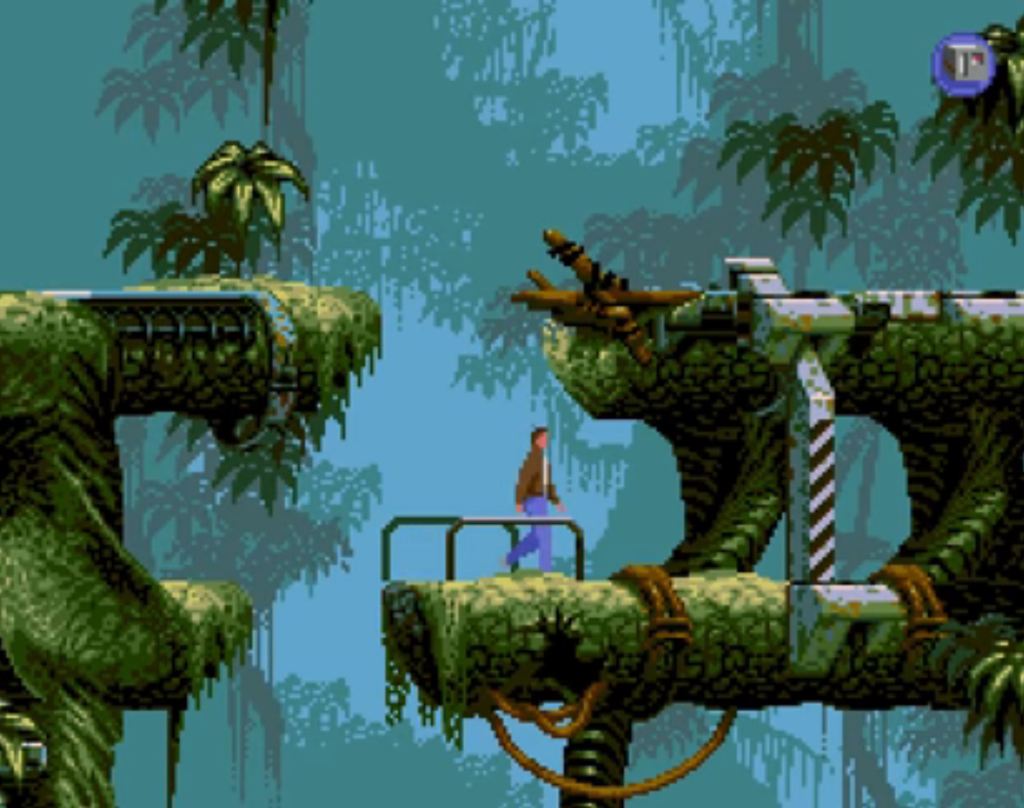
6. Flashback
Flashback is a cult classic cinematic platformer that plays out like a sci-fi version of Prince of Persia. It is intentionally difficult, and encourages players to fail multiple times as they puzzle their way through the game’s labyrinthian levels. While there’s a degree to which the game is designed to be frustrating, those who played the title on the SNES likely have significantly worse memories of it.
Flashback was originally developed for the Sega Mega Drive and Genesis (even though it was initially released on the Amiga). When Flashback was ported to the SNES, several technical problems emerged. The SNES rendition was plagued with lag and slowdown that made an already challenging game that much more frustrating. Playing Flashback on the SNES is like trying to explore Blighttown in the original version of Dark Souls, except the framerate never improves when you leave the area. It’s tolerable, but it’s not exactly fun.
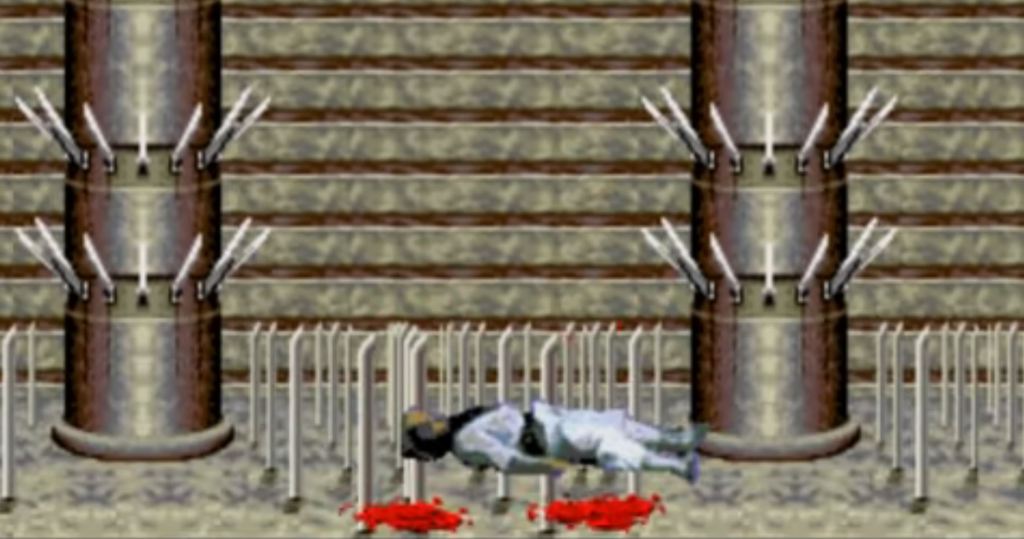
5. Mortal Kombat
Mortal Kombat changed gaming forever. The original arcade classic was so violent that it resulted in a US Senate hearing that culminated in the creation of the ESRB. Despite that controversy (or because of it), the game became so popular that it was ported to nearly every platform on the market, including the SNES and Sega Genesis. Ironically, had Mortal Kombat premiered on the SNES, the ESRB probably wouldn’t exist.
In many respects, the SNES and Genesis versions of this game are fairly similar. If anything, you could argue the SNES version of the game looks better. However, that version loses all of its advantages thanks to its infamous lack of blood. Meanwhile, the Genesis version is as bloody as the arcade original (so long as you input the “blood code”). While a little more digital crimson usually wouldn’t make that much of a difference, Mortal Kombat without excessive gore is an entirely different (and much worse) experience.
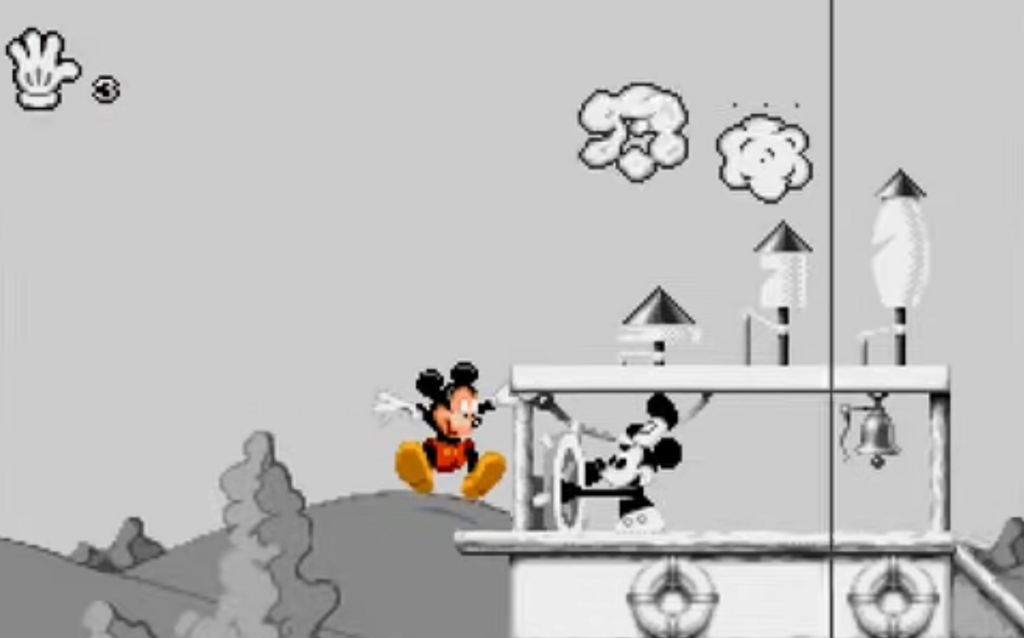
4. Mickey Mania
If you compare both versions of this game via screenshots or brief gameplay snippets, you may be tempted to argue that they’re about even with each other. However, the somewhat surprising truth of the matter quickly becomes apparent once you actually try to sit down and play these games for an extended period of time.
Simply put, the Genesis version of Mickey Mania is better than the SNES version in just about every significant performance category. It boasts better resolution, better animations, and, most importantly of all, doesn’t suffer from the bizarre load times that plague the SNES version of the game. What’s really strange is that the Genesis version of this game also features new and extended levels not found in the SNES version. I assume that there were some technical/development problems that prevented those levels from appearing in the SNES version, though I’m not sure why the Super Nintendo struggled so much with this particular game.
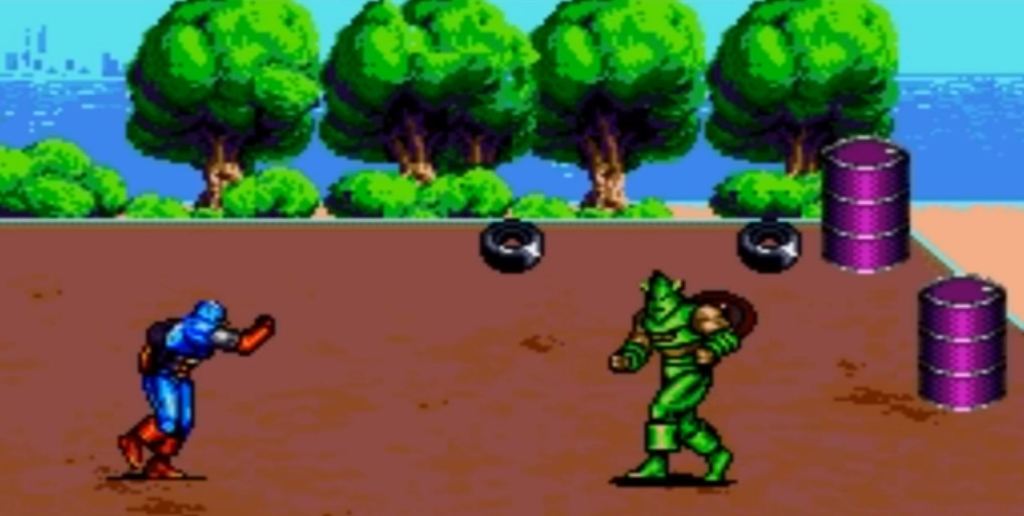
3. Captain America and the Avengers
Long before the Avengers disappointed gamers in 2020’s Marvel’s Avengers, the team starred in a much different game, Captain America and the Avengers. The latter game was released for the SNES and Sega Genesis and is arguably better than the former (although that is a low bar to clear). More importantly for our purposes today, the Genesis version of that game was generally superior to the SNES edition.
Neither port matches the original arcade version’s graphics or sound design, though the SNES port generally fares better in the presentation department. Sadly, the SNES port is horribly unbalanced. Enemies are way faster than normal and deal significantly more damage. Moreover, they can easily trap players in a corner and quickly chip through all their health and lives. So while the Genesis version may not look as good, its gameplay is far more balanced. Enemies are slower and less likely to box in players. It’s still challenging, but it rarely feels cruel.
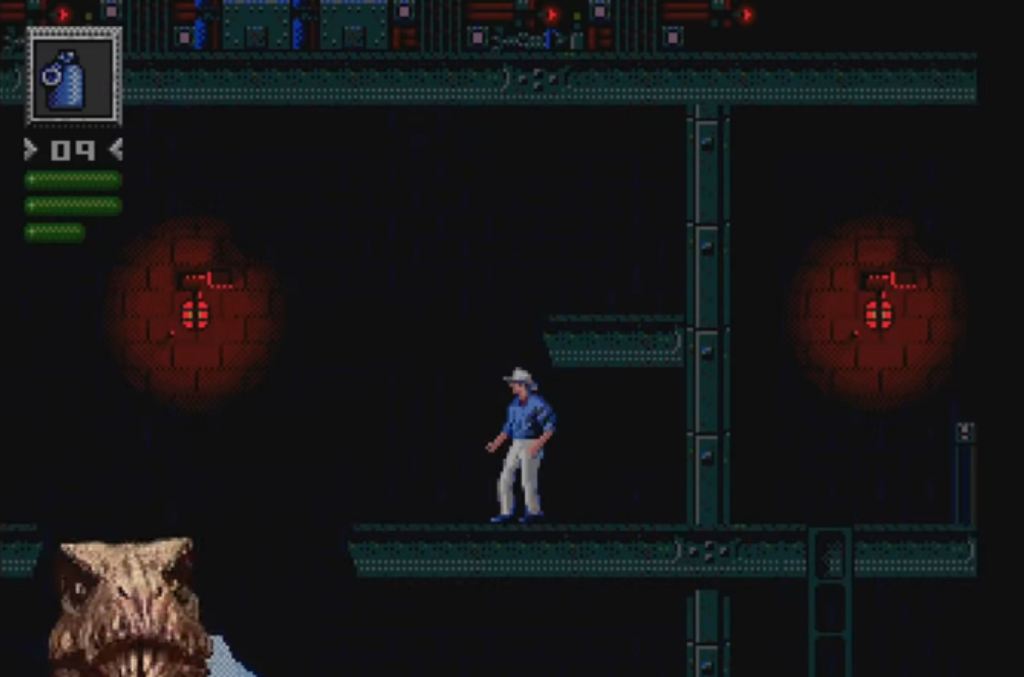
2. Jurassic Park
Try not to be surprised, but there were quite a few games based on Jurassic Park, and they usually varied wildly in quality. In fact, even the SNES and Genesis Jurassic Park games were entirely different beasts in terms of both structure and appeal.
The SNES version of this game is a top-down shooter that occasionally switches to a first-person perspective. Every character and dinosaur pops thanks to their colorful and semi-cartoonish designs, but the title’s gameplay just doesn’t get it done. That version of the game aims for an ambitious kind of “open-world” structure that is sadly ruined by a lack of saves or passwords. If you want to beat the SNES title, you have to do it in one sitting.
The Genesis version of Jurassic Park offers something much more traditional. It’s a side-scrolling platformer that opts for a more realistic look. The dinosaurs were even created using stop motion and better capture the feel of the movies. Plus, the game features two storylines since players can choose to control either Dr. Alan Grant or a velociraptor. Yep, you read that correctly; Jurassic Park on the Genesis lets you play as one of the iconic velociraptors. It’s not as ahead of its time as the SNES version tried to be, but it’s a lot more fun.
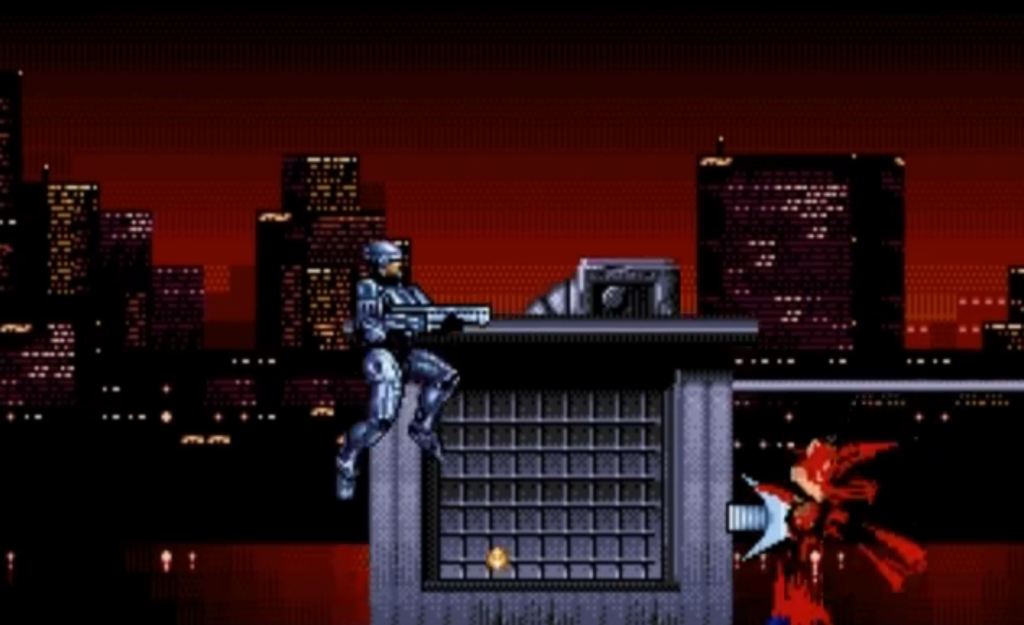
1. Robocop vs. Terminator
Crossovers are an excuse to let our imaginations run wild by picturing how characters that couldn’t normally meet would interact. While Robocop Vs. Terminator attempts to portray the marquee battle featured in its title, those who played the SNES version of this game may have not bothered to stick around lock enough to see the winner.
While both versions of this game look great, the Genesis version offers a slight presentation edge thanks to its superior graphics and sound. Sure, the SNES version is more colorful, but the Genesis’ muted colors better match both Robocop and The Terminator‘s original tones.
Where the Genesis version truly shines, though, is in its gameplay. Simply put, Robocop moves much more quickly and significantly smoother in the Genesis version of this title. That speed boost makes combat more fluid, frantic, and, most importantly, fun. Moreover, enemies die faster in the Genesis game, which gives the experience a fast, arcadey feel superior to the SNES rendition. The extra gore in the Genesis port is also an obvious (and memorable) advantage
